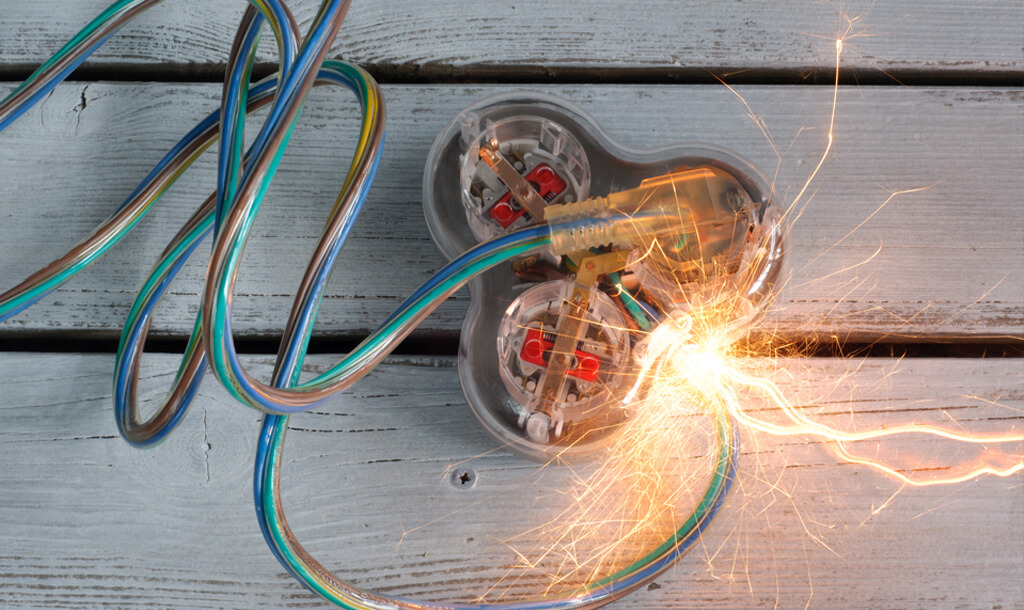
Vs when’s it time to call in the professionals
When things go wrong in the home, it’s so easy to think to ourselves “we can do that, I don’t need to pay someone”. But sometimes, DIY is a definite no-no. Especially when it involves electricity. As a Sydney Real Estate Agency who looks after tenants and landlords alike, we’ve seen and heard some horror stories when it comes to the electric breaking down.
It’s a common scenario. You’re half way through an episode and suddenly the TV stops. The lights are gone and you find yourself sitting in darkness. First thing should always be a quick visit to the fuse box (torch in hand). However, when this doesn’t work, when is it ok to fix the problem yourself?
With an electrical fault, the answer is mostly never. Ask yourself “will it involve any wiring?” and if the answer is yes, you’ll need to call in the professionals. Remember, undertaking the work yourself could mean hefty fines and jeopordising your insurance.
Changing a light bulb – Absolutely ok to change yourself. Just remember to switch off and unplug before starting.
Changing a light fitting – In theory, this seems like a quick and simple job. In reality, it’s more complicated and needs to be done by a qualified electrician. Plus, strict Australian regulations mean that you are actually not allowed.
Tripped safety switches – Sometimes when the power cuts, a simple flick of the switch is all that’s needed to restore it. If it keeps happening, look at what you’re using when it happens and try to change it to a lower setting e.g. a hairdryer.
Changing or repairing switches- Perhaps your dimmer switch isn’t working properly. Or you want one installed instead of a standard switch. Call in the electrician as repairing/installing switches will require you to touch the wiring.
Moving a power point – Whether your house is new or old, there will always be a time when you want to rearrange a room. This could mean adding an appliance/lamp in an awkward spot, away from the power point. But please don’t attempt to do this yourself. This is definitely a job for a qualified electrician.
Installing an appliance – Whenever you purchase an appliance it comes with detailed instructions. Once all the connections have been installed in your home, it may seem like all you need to do is plug it in. Unfortunately, this isn’t the case. According to Australian regulation, you can fit an appliance i.e. an electric wall oven in a kitchen cabinet, BUT a qualified tradesperson has to connect it.
Lighting up your garden – Just like we like to change our rooms around, we sometimes like to add to our gardens. Perhaps you’d like to add some lighting to the perimeter? Or fairy lights around your house? The great news is, as long as it’s low-voltage, this is something you can do yourself.
Rewiring fuses – Some old houses still have ceramic fuses. These often blow for no reason and can be rewired safely with the power off. HOWEVER, if you’re home wiring is very old, you’ll need an electrician to inspect and repair it if needed. Also, if you’re looking to upgrade the old-style wiring with more modern, up-to-date circuit breakers, you’ll definitely need a professional.
Installing a ceiling fan – Australian summers can get pretty damn hot and not all of us have (or want) air conditioning. If you’ve decided you’d rather have a ceiling fan, you can go to any light/DIY hardware store and purchase one; but you can’t install it yourself.
Minor repairs of appliances – Is your washing machine rattling or your oven not heating properly? The most you can do yourself is replace the drive belt in your washing machine. For anything else, you need a qualified tradesperson.
When electrical accessories and appliances are so easily available in DIY hardware stores, it can blur the lines. Just remember, it’s not illegal to buy the fittings but only a qualified tradesperson can install them.
The license is the law
Whenever you have electrical work done in the home, a certificate of compliance is needed. This can only be issued by a registered electrician. Always ask to see the license of any tradesperson.
